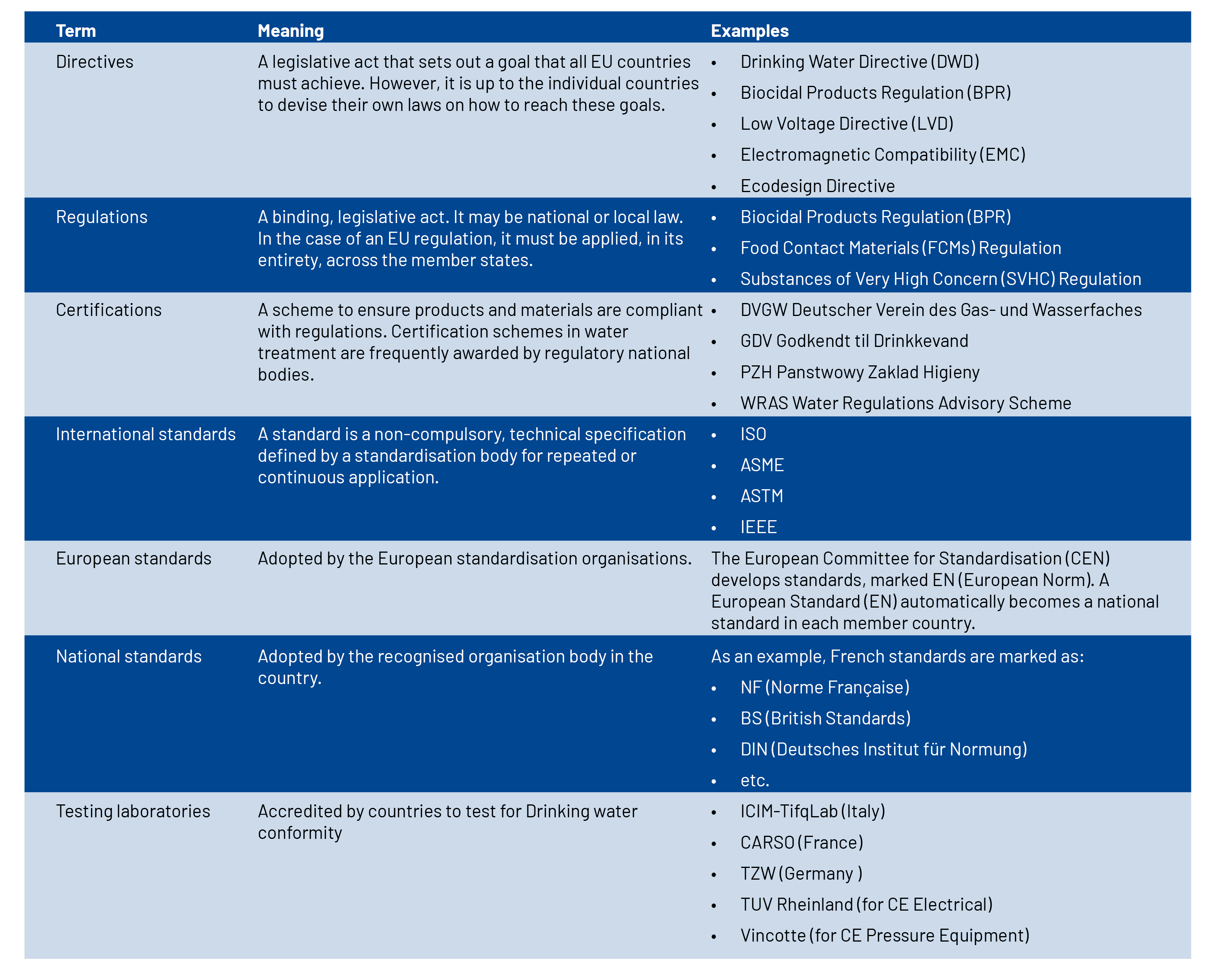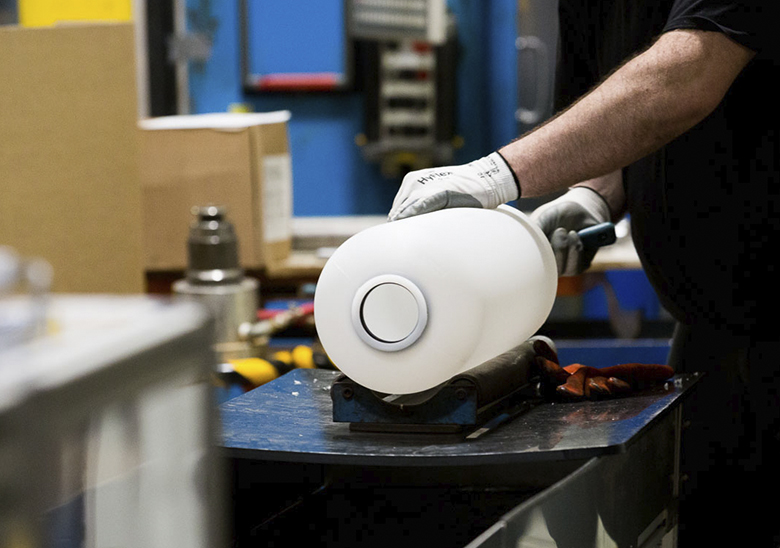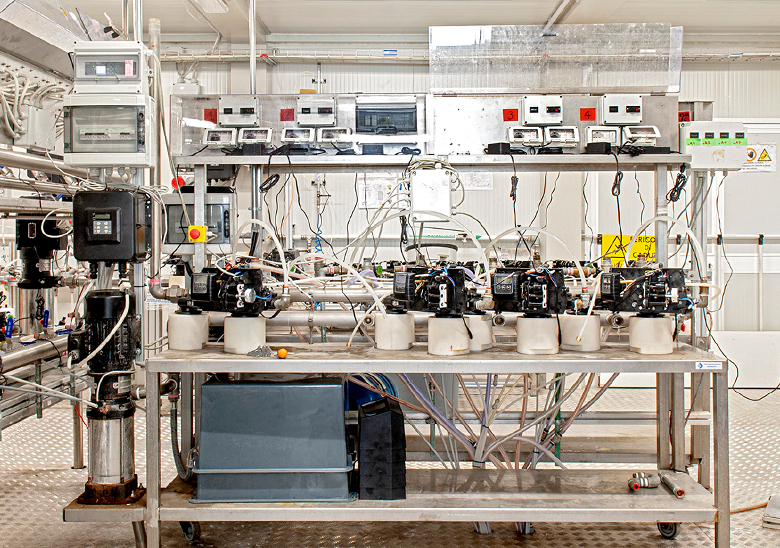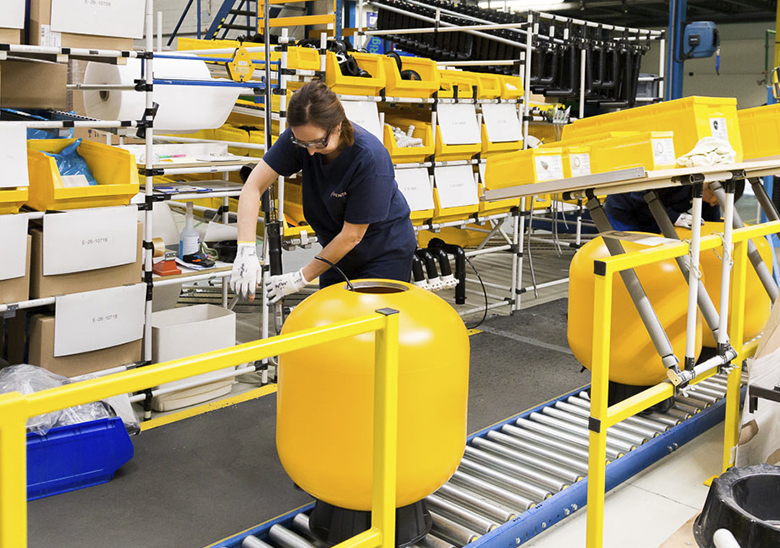Water Compliance, Where The Only Constant is Change
The Pentair dedicated European Regulations Team constantly monitor the regulatory landscape to ensure our certifications keep pace with any changes.
Clean drinking water is one of life’s essentials, so it is little wonder that the European water treatment industry is so highly regulated and carefully monitored.
To sustainably deliver clean, safe water to its citizens across Europe, every authority, in every country, insists on conformity to the strictest of regulations. All substances, materials and products are tightly controlled, and working processes carefully documented. Each manufacturer, supplier and installer also has an important part to play. Standards must be met, people accredited and certifications achieved. The reward is our total confidence in the water we use. Healthy, contamination-free and good to taste, smell and look at.
Pentair helps to make that happen every day.
Investing in water quality
For Pentair, nothing is more important than the responsibility of compliance with water quality standards. It invests hundreds of thousands of Euros every year in maintaining European regulatory certification.
Pentair Europe has its own highly specialised team of experts in the regulation of the water treatment industry. Working from Pentair’s Pisa operation, they constantly scan EU directives and regulations looking for innovation and change – and any impact that might have. Their work informs Pentair manufacturing, distribution, export, conformity and compliance.
European water regulation is a complex landscape
We asked Gian Paolo Bruno, Water Treatment Products EMEA Engineering Manager, to provide an insight into the workings of the team.
“In Europe we are part of a Pentair’s global efforts to make our products compliant with local regulations wherever necessary.” explains Gian Paolo. “Every country has its own requirements for water safety and our six internal testing labs across Europe, USA and China are constantly testing and monitoring to check that our products keep pace with required regulations.
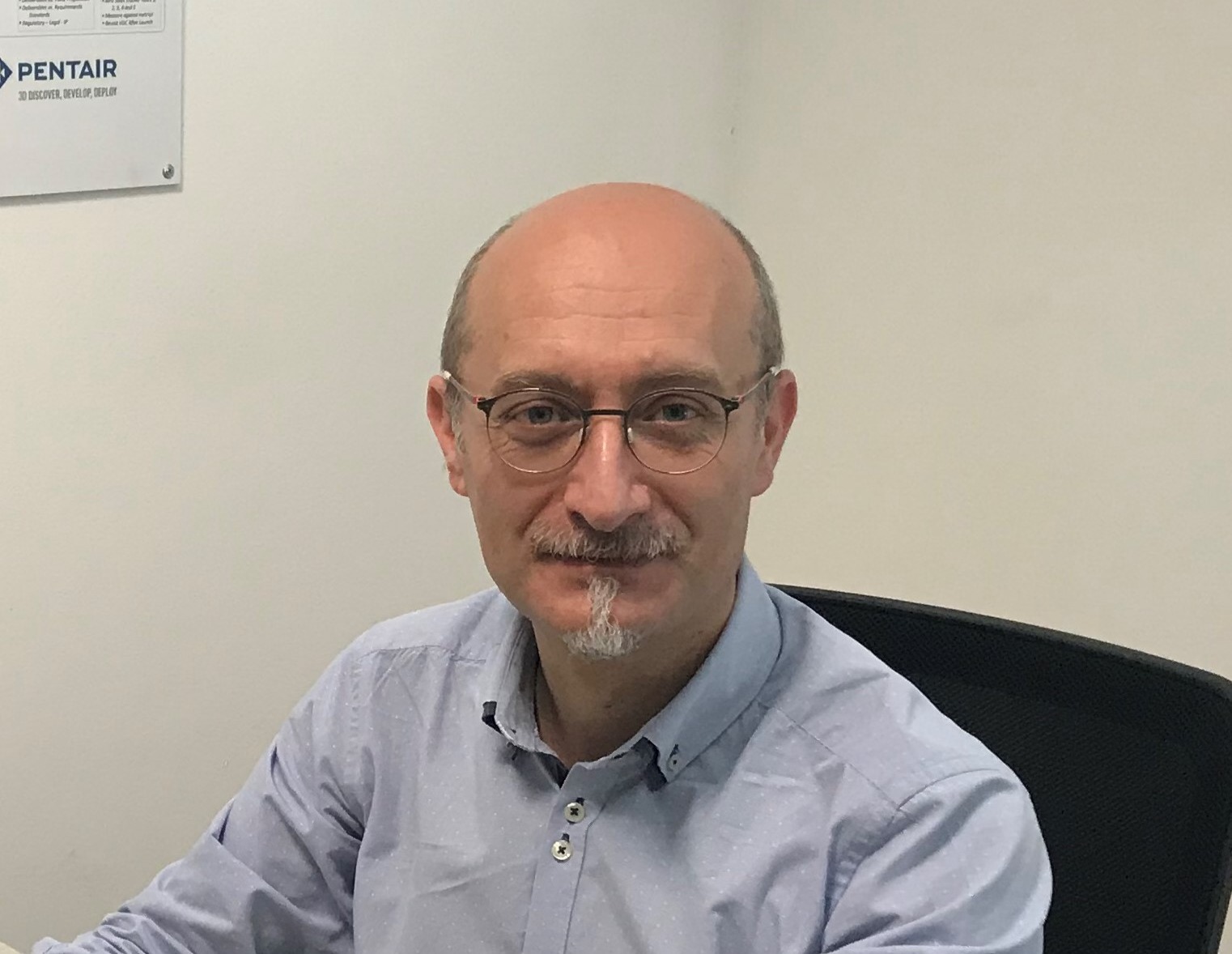
“In some ways Europe is the most complex region for the regulation of water treatment. We are governed by several EU Directives, like the ‘Drinking Water Directive’ (DWD) or ‘Low Voltage Directive’ (LVD) which set out goals for countries to achieve. However, it is up to each country to devise their own laws on how to incorporate those directives into their national laws. For example, the LVD has been relatively straightforward as most countries agreed on it as a set of technical standards – harmonised across Europe. But in the case of the DWD there has never been common approach across different nations. While the goals are the same, local authorities can, and do, interpret the DWD in their own way, with many placing a higher standard than the DWD actually requires.”
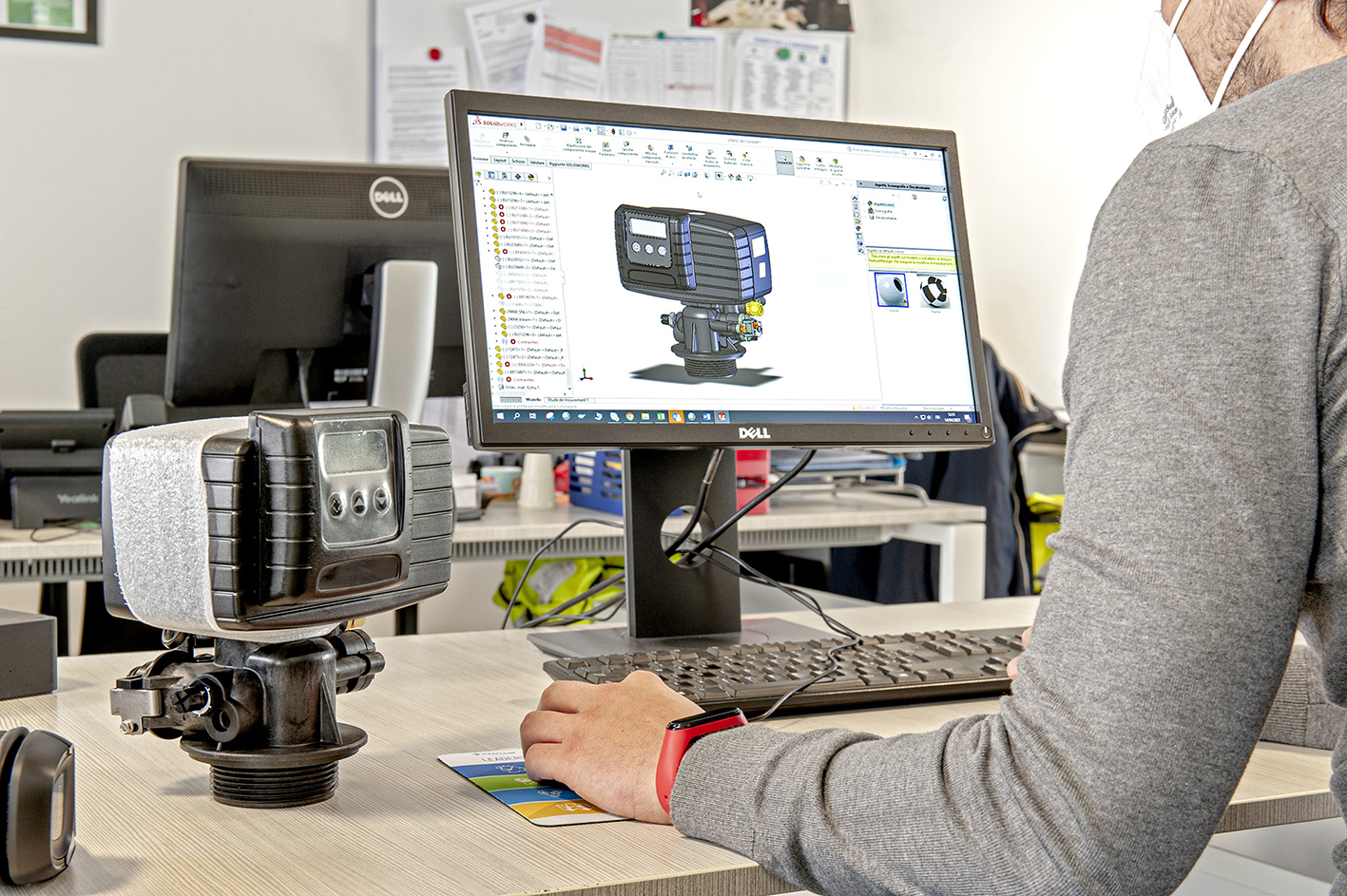
Nothing is constant except change
“EU technical committees meet and review technical standards every few years,” Gian Paolo continues. “If they make a small change, for example to the license for a manufacturing compound, this in turn can have a ripple effect through to materials we currently use, or the regulations adopted in a particular country. Either way, we must be aware, and accordingly we may be required to modify our product and resubmit our request for certification renewal. With the lab tests and administration required that can be a long and costly process.
“To give you an idea, Pentair’s European Water Treatment Business alone has well over 2000 products certified for its residential and commercial business, with about 10% of those that come up for renewal each year. There are 14 new industry regulations planned in the next three years alone.
“As a responsible manufacturer we obviously monitor and comply with these certifications and react to any change.” says Gian Paolo. “We check our products meet the new requirements where possible and achieve the appropriate declarations of conformity – which is particularly important when Pentair products are being purchased for export to other regions outside Europe who may have their own legal requirements. For some sectors, such as the food contact markets, we also need to provide traceability, where we are required to be able to provide a specific product serial number or even the manufacture date of a compound.”
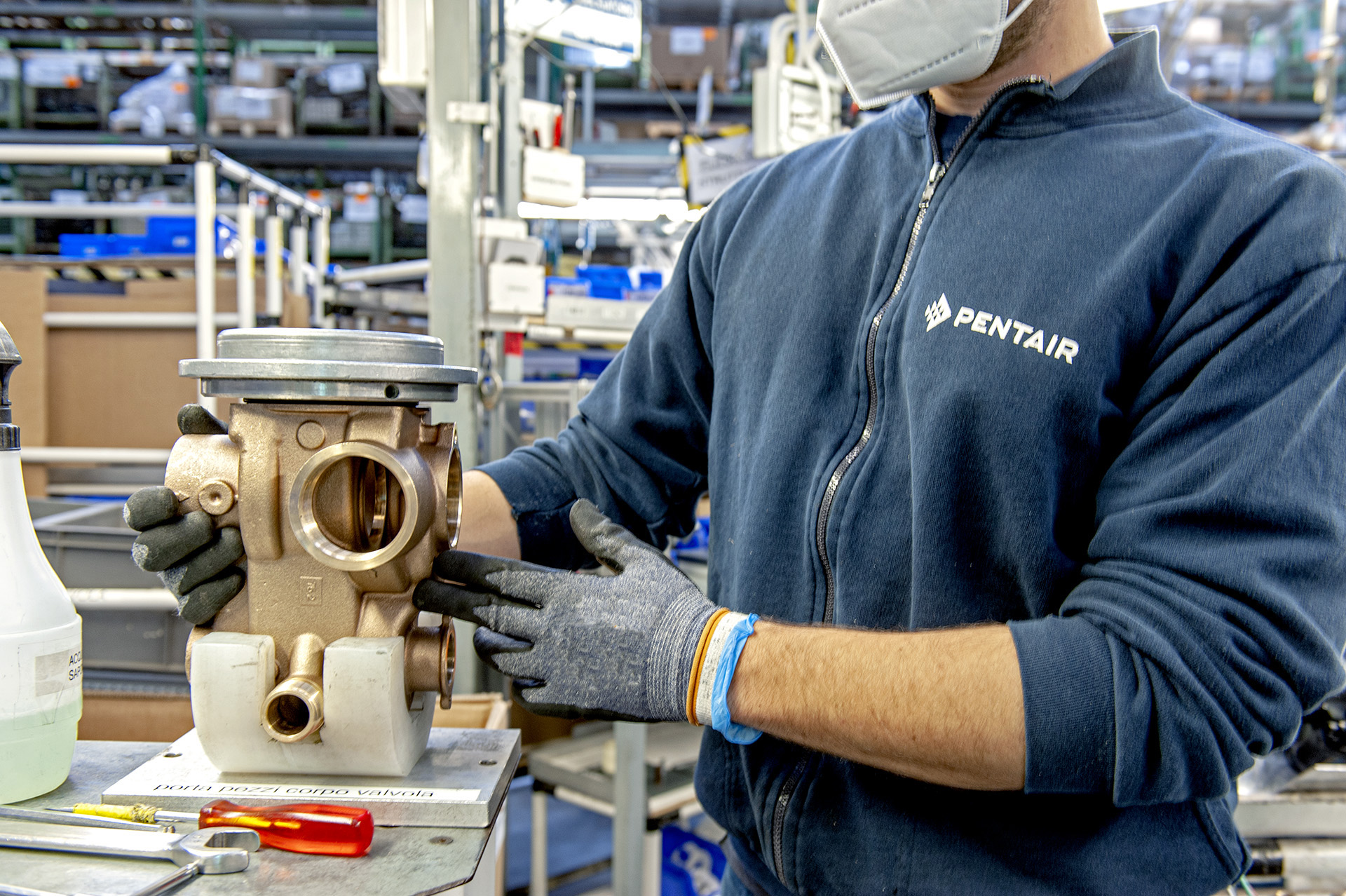
Certification is just the beginning
“Maintaining certification can be like a marriage.” Gian Paolo smiles. “The wedding license is just the start. As we age, it takes love, nurturing and understanding for a long, happy marriage. So is the case with certification – it is rarely static. Directives change every few years, regulations often more frequently. So, certification is something that must be monitored, reviewed and renewed for lasting harmony.
“Happily, we have been doing this for a long time. We have been working with the major European and international appointed laboratories such as TIFQlab, Groupe CARSO, TZW, Kiwa, Eurofins and NSF International for many years and understand their requirements. Whether it is a new certification or a polymer that is reaching the end of its license, we can often anticipate change and adapt to ensure we continue to meet any new regulations. That said, it can still take between 6–24 months to achieve a certification.”
European water quality is safe in our hands
“We all have a social and legal responsibility for clean, safe water, whether that is governments, laboratories, manufacturers or installers.
We leave nothing to chance, and the investment Pentair make in regulatory compliance provides our European customers with that extra layer of confidence. It’s built into our products and part of the reason why our customers insist on Pentair.”
A compliance compendium
